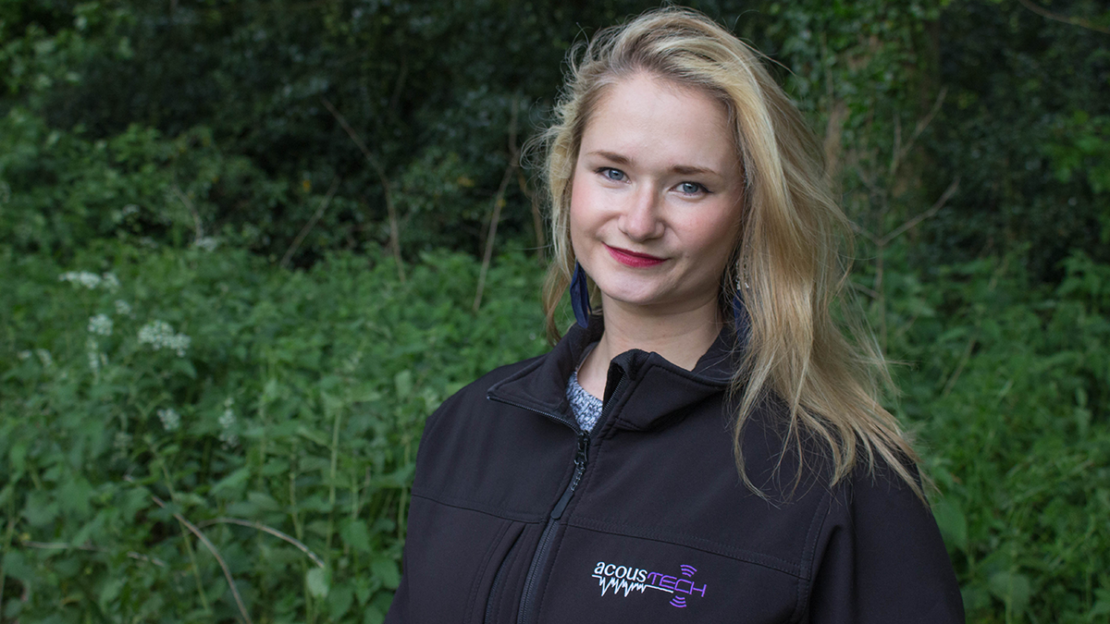Sophia Livett, Acoustech Director, shares her experience of switching to an electric vehicle for the season. Working alongside sister-company, Symphotech, the initiative is one of the measures taken to make their event services more sustainable.
Despite discovering the need for better infrastructure to support electric vehicles before they are suitable for a busy person in the event sector, Sophia remains an advocate, concluding that the increasing urgency to cut carbon in light of the climate emergency make the inconvenience worth it, in addition to the financial savings on fuel! Read about her experience:
Symphotech has emerged from lockdown with a new internal company structure, coupled with a renewed ambition to conduct business more sustainably.
In 2019, Symphotech supplied all of its staff and contractors with refillable steel water bottles, to help eliminate single-use plastic bottles from their event sites. The successful initiative, which continues this summer, signalled a key step on the road to reducing the impact of its operational activities and they are moving on to the next challenge.
Symphotech is a service-oriented business. Best known for event Health & Safety and Event Production, they have now created three distinct divisions, with Acoustech, providing specialist noise management and sound.
During lockdown, Sophia Livett, Acoustech Director, utilised some (rare) spare time to investigate ways of improving the company’s environmental practices. Having considered the areas she could focus on, she decided that the travel impact of employees buzzing around the UK to event sites could make a significant difference.
In addition to ditching buggies in favour of a bicycle (or walking) to get around sites to her noise monitoring positions, Sophia took the plunge and leased an electric car, to understand the savings and practicalities. Three months into her electric car journey Sophia shares her experiences.
“The starting point has been to record all the miles each of our Directors and staff are doing this summer. Those miles can be translated into CO2 emissions. After speaking with the industry travel charity ecolibrium, we decided to focus our efforts on reducing emissions as far as possible. It’s hard to reduce the miles, as we need to be on-site, so electric vehicles were the next step.
“A look around the production car park tells me I’m an early adopter of an electric car and I’m really pleased we’ve gone down this route. It has presented me with logistical challenges, around the time spent to find and use charging points and it is clear there needs to be better infrastructure to support electric vehicles before they are suitable for a busy person in the event sector. I’ve been very keen to make this work but sometimes found it very frustrating at the time it’s taken me to achieve journeys – at a time of year when time is at a premium.
“Most event sites don’t have charging points as an option for production staff, which would be very helpful and it is taking me time and effort to make sure I have them on my journey. Even then, it is hope there isn’t a queue! Vehicles with a limited range, such as the 200miles brand I am driving, are going to be a challenge, but with Tesla seeming to be the ideal vehicle, I hope they come down in price to match the budget of most production staff.
“The very high cost of fuel this year means I am seeing a financial saving to add to the carbon saved.
“In light of the climate emergency, I feel the inconvenience is worth it. I hope these insights will be useful to anyone else considering the switch to an electric car – and I hope that the event sector and wider society invest in better charging facilities and affordable longer-range vehicles.”
This guest blog originally appeared in our July 2022 Vision: 2025 newsletter. Sign up to receive monthly event sustainability news, case studies and guest blogs direct to your inbox.


